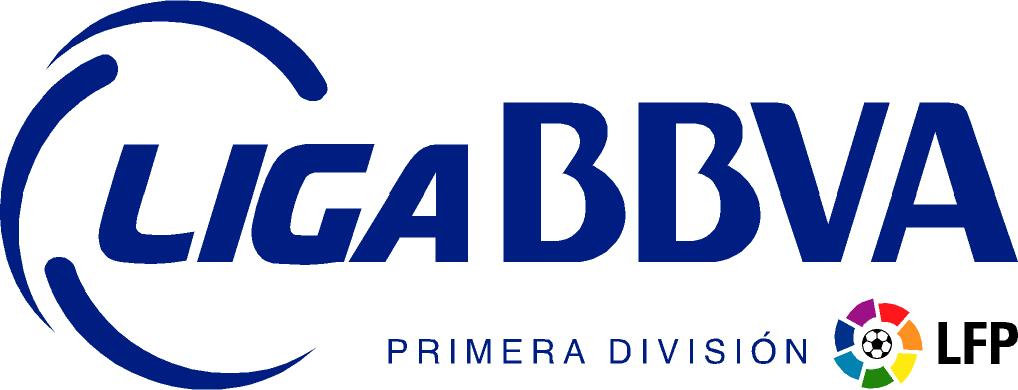It boasts the European champions at club and international level, the world’s two best players and the highest UEFA coefficient rating of any league in Europe, but La Liga is rushing to up its act when it comes to selling television rights.
The English Premier League’s record £5.1 billion ($7.8 billion, 6.9 billion euros) deal to sell their rights to broadcasters BT and Sky Sports for the three seasons between 2016-19 has reverberated around Europe as a cause for concern for the competition on the continent.
La Liga is the only major league in Europe where the teams continue to sell the rights to their games on a club-by-club basis rather than as a collective group.
That has benefited some, namely Spanish football‘s two giants Real Madrid and Barcelona, who have managed to obtain contracts worth an estimated 140 million euros a season, amounting to almost 50 percent of the whole pot when it comes to Spanish TV rights.
While the arms race for the world’s biggest stars between Real and Barca has escalated in recent years, there has been an exodus of the best players from every other team in the top flight with England often the destination.
Last season’s La Liga champions Atletico Madrid sold top-scorer Diego Costa and Filipe Luis to Chelsea, a year after losing Manchester United’s Radamel Falcao to the then free-spending Monaco.
Indeed, Spain’s World Cup squad in 2014 did not contain a single player who didn’t play for one of the top three in La Liga or abroad.
“What is happening right now in La Liga is shameful,” Espanyol president Joan Collet told AFP in an exclusive interview.
– Collective bargaining –
“That those clubs that make the most earn in some cases 12 times more than the poorest is a scandal that doesn’t happen anywhere else in Europe.”
In a bid to push the clubs into a collective agreement, both the Spanish Professional League (LFP) and the country’s football federation have pressured the government to pass a law that will force the clubs to bargain collectively with broadcasters from the 2016-17 season onwards.
“What is going to happen in the coming days is decisive for Spanish football,” LFP president Javier Tebas said last week.
“The most immediate concern is the decree for the centralised sale of television rights.”
Tebas has even suggested the league could strike if a solution is not found before a meeting scheduled for March 25.
Jose Maria Gay de Liebana, a professor of economics at the University of Barcelona and a respected commentator on the finances of Spanish football, concurs that the delay in agreeing a collective deal has left the game in Spain lagging behind off the field and could have even more drastic consequences on it.
“This generates a handicap for Spanish football“, he told AFP.
“It means that the money doesn’t come into Spanishfootball as it should and therefore it loses its competitiveness.
“Madrid and Barca need competition from the likes of Atletico, Sevilla, Valencia, Villarreal. They need strong clubs, that way there is a spectacle.
– Old failings –
“If they are winning seven or 8-0 every week it doesn’t arouse interest.”
Barcelona vice-president Manuel Arroyo admits that the Premier League deal is worrying, even for the Catalan giants given the financial muscle it will give their English rivals, but concedes it is the best way forward for La Liga.
“Barcelona are aware that this difference isn’t sustainable and, therefore, we are in favour of working together so that the league can improve its income.”
Collet says that Espanyol’s negotiations for the 2015-16 season will see them net around 24 million euros, but believes a collective agreement could see them net 40-50 percent more.
By contrast, a side of a similar stature in the Premier League can expect to make upwards of 100 million euros a season once the new deal comes in.
However, Collet also has concerns that old failings could also derail a new system.
Firstly, he insists that Spain’s traditionally late kick-off times on Saturday and Sunday nights minimises its impact in the lucrative Asian market.
Even more significantly, he fears Madrid and Barca’s dominant position could be reinforced by the proposed system whereby 50 percent of the revenue would be split evenly and the remaining half divided up based on factors such as league position and size of fan base.
Yet, more than just the spectacle, there is also the future financial viability of the clubs to take into account.
Despite overdue efforts to fight the problem, Spanish clubs are heavily indebted to the taxman to the tune of over 400 million euros.
Collet is in favour of any increase in TV revenue that could come the clubs’ way being used to ease that debt.
“I have proposed publicly that when they pay us what we deserve, the clubs use that money to clear the debt with the tax authorities.
“If in the end the revenues are what we think they can be, the clubs could wipe out that debt in five to six years.” – Agence France-Presse






































